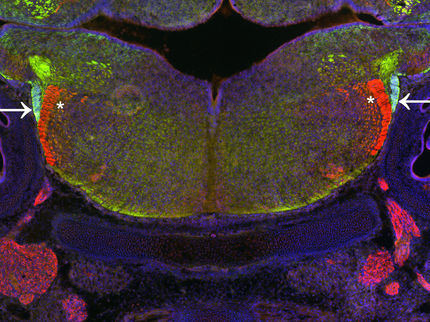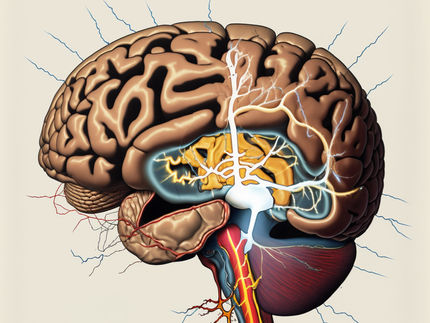How parenthood gives the brain superpowers
That's why mom and dad are superheroes
Advertisement
Since she's had children, she's just not her old self anymore. And since he became a dad, you can't do anything with him anymore. Is there really anything to such statements? Absolutely! Find out here how parents' brains actually change during pregnancy, when a child benefits from a dad and what superpowers parents have.
"Mamaaaaa? Did you sign the music test, pack the snack, ask Maria if she can come and play and WHERE is my thing?" Who the heck is supposed to have all these things and 20,000 more on their screen and answer such unspecific questions competently? Surprise: Mom can! Because mom feels like she's several people in one, has a brain like an elephant and is generally the best. Just like dad. He's Superman anyway. Isn't he?
Dr. Julia Zwank, Professor of Business Psychology and expert in developmental psychology, answers fascinating questions about parenthood.
It is said that mothers simply have everything in their heads. Is this a prejudice or is it true?
"If we look at the brain of a mother and the brain of a childless woman in a brain scan, we can see quite clearly which one is which. Isn't that fascinating? The changes in the brain that come with parenthood are the most significant in all of adult life and can be compared to the changes during puberty.
Nature is literally remodeling our brains to prepare us for our role as caregivers for a vulnerable being. Already during pregnancy, for example, we see that the gray matter of the brain decreases in certain areas and increases in other areas, which continues after birth. Parents have stronger neuronal networks compared to non-parents, which are associated with increased vigilance for threats, for example. These changes in the brain are so significant that a computer algorithm can even accurately predict whether a woman is a mother or not based on the neuroanatomical changes.
These intensive changes take place over a relatively short period of time. When a child is born, a mother is also born who is then a different woman than before - with a rewired brain."
When does the brain begin to adapt to parenting mode?
"The process begins during pregnancy and continues beyond birth. Studies show that in moments of closeness between babies and their parents, their bodily functions synchronize. This always happens when we are happy together, when we look each other in the eye and feel shared joy. An example of this is the mother smiling lovingly at the baby on the changing table or the father dancing with the baby in his arms or enthusiastically playing "peek-a-boo" - over and over again.
This synchronization not only supports the development of the brain, but also allows the physical functions to mature. There are different levels of coordination between parents and child: the heart rhythms of mother or father and child adapt to each other in milliseconds, for example, which indicates a deep physical connection and supports the development of the child's organism and physical functions. In these moments, hearts truly "beat in time". Parents and babies have similar levels of oxytocin, the "love hormone", which further strengthens their bond. Even the brain waves seem to align in these moments of closeness.
This synchronicity then fundamentally supports child development and helps the stress system to gradually mature. If we now think further, it also influences the child's ability to one day become a loving and empathetic parent for the next generation. This shows how important real closeness is for the child's brain development - and for that of the parents."
Do all mothers have this? And what about fathers? Do men's brains also change during pregnancies or with the arrival of the newborn?
"Pregnancy with its hormonal fireworks provides the impetus for this brain remodeling. But brain changes don't just occur in mothers. We also see them in fathers, adoptive parents and close caregivers. What matters here is the quality of the interaction. Because the behaviours that promote this synchronization between adult and child, and therefore brain development in both parent and child, all have one thing in common: they occur with connection and in positive social interactions. Closeness, eye contact and gentle touch. Parents who hold, carry, sing to and cuddle their babies. Parents who are sensitive and attentive to their babies' crying. Parents who observe their babies' inner world with curiosity. It is these loving and attentive interactions that not only strengthen the bond between parent and child, but also form the basis for the healthy development of the child's and parents' brains."
So what are those parents with new brains better at than others?
"A kind of network develops in the brain, which some researchers even refer to as a 'global parent network'. This ensures that parents can adapt to their babies and learn to read their needs. Many parents suddenly start to see all the potential dangers in everyday life - the sharp edge, the high scaffolding, the too big grape that could swallow the child. This is the alertness and sensitivity that is heightened in a parent's brain. Or think of moms and dads who can distinguish the different sounds their child makes, know when it is hungry, tired or wants to be held in their arms. Or parents who rock their newborn for hours at 2 a.m., even if they themselves are completely exhausted. The parental brain is like a kind of superpower that nature endows us with. With which we can ensure the survival of a small, helpless being."
So for a certain period of time, we are more attentive, more efficient, more persistent and also manage with less sleep. Does the brain go back to factory settings at some point or does it remain a parent brain for life?
"Current long-term studies indicate that these structural and functional changes persist."
What role do dads play?
"It was long believed that a child "only needs a loving mother". But that is far from the case. The father's influence is greater than many people think. Children who grow up with loving fathers are significantly less likely to drop out of school or end up in prison than children whose father is absent and who have no other male role model. When children have close relationships with father figures, they are less likely to engage in risky behavior and are significantly less aggressive or criminal in adolescence. As adults, they are significantly more likely to have well-paid jobs and healthy, stable relationships. They also tend to have higher IQ test scores at the age of three and suffer less from mental health problems throughout their lives.
However, I am always concerned about the influence of a father when he is rejecting. A large-scale study in several countries has shown that children who are rejected by their father are significantly more anxious, insecure, aggressive towards others and hostile than children who experience a loving father. What is really exciting is that a rejecting father has a much greater negative influence than a rejecting mother."
What does "loving" mean? And at what point is a father an active father?
This is mainly about time spent together, but the quality of time is more important than the quantity. Watching television together, for example, doesn't help much here. What counts are shared experiences, experiences that generate positive emotions. Studies show that fathers who live together with their children and take part in important events have a far greater positive influence than fathers who travel a lot or live somewhere else.
Can a father decide later on to take an active part in his children's lives and still have a positive effect, or does the train leave the station at a certain age?
"The first years of life are definitely the most formative. But even if the train has already set off, we can still sprint after it and get on board. It's never too late. Our brain is plastic, meaning that it changes depending on the experiences we have. Regardless of the family constellation, children benefit from attentive and committed adults - and adults also benefit from their children, who push their brains to peak performance and give them amazing extra skills, which in turn benefit them throughout their lives. When a baby is born, not only is a baby born, but also two parents."
Let's be clear: mom and dad ARE superheroes. They have to be, because they have scientifically proven superpowers. And the more committed they are to their role, the more pronounced the superpower.
Note: This article has been translated using a computer system without human intervention. LUMITOS offers these automatic translations to present a wider range of current news. Since this article has been translated with automatic translation, it is possible that it contains errors in vocabulary, syntax or grammar. The original article in German can be found here.
























































